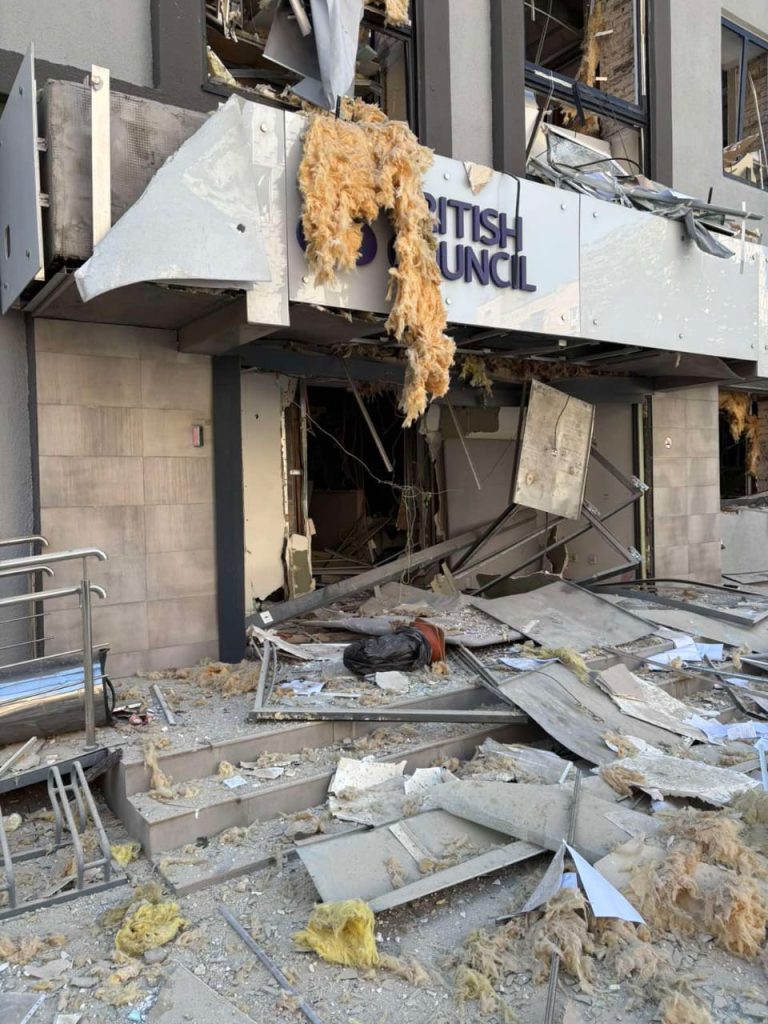The United Kingdom and European Union have summoned Russia’s ambassadors after a wave of missile strikes on Kyiv killed at least 23 people, including four children, and severely damaged the offices of the British Council and the EU delegation.
The overnight assault was the deadliest on the Ukrainian capital since the Alaska summit between Vladimir Putin and Donald Trump earlier this month. A further 38 people were injured as missiles and drones struck more than 20 locations across the city.
In Kyiv’s eastern Darnytskyi district, a residential building was hit shortly after midnight, while a separate blast in the central Shevchenkivskyi district caused widespread damage to buildings housing EU and British institutions. It is the first time since the full-scale invasion began that British government property has been directly affected by Russian strikes.
Ukraine’s air force said the barrage included 11 ballistic missiles, 20 Kh-101 cruise missiles and nearly 600 Shahed and decoy drones. Most were intercepted, but several ballistic and cruise missiles penetrated air defences. Explosions were heard at around 3am and again just after 5.30am.
Keith Kellogg, Donald Trump’s special envoy for Ukraine, described the strikes as a threat to the US president’s peace proposals. “These egregious attacks threaten the peace that [Trump] is pursuing,” he said. The White House added that Trump was “unhappy but not surprised” by the assault and again urged “both sides” to end the conflict.
In London, foreign secretary David Lammy summoned Russia’s ambassador, Andrey Kelin, over the destruction of the British Council offices. “Putin’s strikes last night killed civilians, destroyed homes and damaged buildings, including the British Council and EU Delegation in Kyiv,” Lammy wrote on X. “The killing and destruction must stop.”
Prime minister Keir Starmer condemned the strikes as “senseless” and accused Moscow of “sabotaging hopes of peace”. Photographs released by the British Council showed smashed windows, collapsed ceilings and debris strewn across its Kyiv office. The EU’s ambassador, Katarína Mathernová, confirmed that the delegation’s premises were “severely damaged by the shock wave”.
President Volodymyr Zelenskyy said the onslaught demonstrated that Moscow had no interest in negotiations. “These Russian missiles and attack drones today are a clear response to everyone in the world who has been calling for a ceasefire,” he said. “Russia chooses ballistics instead of the negotiating table.”
European leaders echoed the condemnation. Germany’s chancellor, Friedrich Merz, said a mooted meeting between Putin and Zelenskyy was now impossible. Italy’s prime minister, Giorgia Meloni, said the strikes showed Moscow’s “lack of interest” in peace. The European Commission president, Ursula von der Leyen, vowed further sanctions, saying the Kremlin would “stop at nothing to terrorise Ukraine”.
Kaja Kallas, the EU’s foreign policy chief, described the targeting of diplomatic missions as a “deliberate choice to escalate and mock peace efforts”.
The British Council, which has operated in Ukraine for three decades, confirmed its Kyiv office would remain closed but said its educational and cultural work with local partners would continue. “Thankfully, our colleagues are all safe,” a spokesperson said.
Since Russia’s invasion in February 2022, the UK and EU have imposed 18 rounds of sanctions. Von der Leyen said a 19th package would be tabled “soon”.



